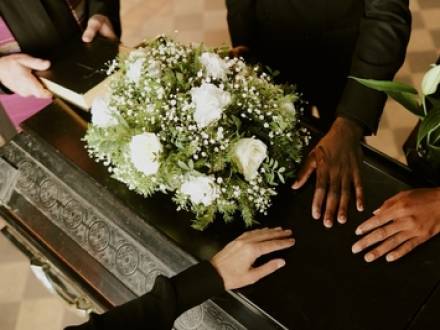 Stars
StarsCan a Group Home Be Liable for a Resident’s Death in Maryland?
 Death in a group home can raise many questions, and families dealing with grief and confusion are often left trying to pick up the pieces. When negligence leads to wrongful death, legal action may be possible. Under Maryland law, families can pursue a wrongful death claim to seek accountability and compensation. A Hagerstown, MD group home abuse lawyer can help you understand your rights and determine the next steps toward legal action.
Death in a group home can raise many questions, and families dealing with grief and confusion are often left trying to pick up the pieces. When negligence leads to wrongful death, legal action may be possible. Under Maryland law, families can pursue a wrongful death claim to seek accountability and compensation. A Hagerstown, MD group home abuse lawyer can help you understand your rights and determine the next steps toward legal action.
Common Causes for Wrongful Death in Maryland Group Homes
When a group home’s failure to meet its duty of care results in death, surviving family members may have a right to hold the facility responsible under Maryland Code, Courts and Judicial Proceedings § 3-902, which addresses wrongful death claims.
Wrongful death is when someone dies because of another person’s negligence, recklessness, or intentional act. In group homes, these deaths are often tied to preventable mistakes or poor care. Some of the most common causes include:
-
Neglect or lack of supervision: Residents may be left alone despite needing help with daily activities, such as walking, eating, or taking medication. This can lead to fatal falls, choking, or untreated medical conditions.
-
Medication errors: Overdoses, missed doses, or incorrect medications can have deadly consequences for vulnerable individuals.
-
Poor infection control: Bedsores, sepsis, and other preventable infections may arise when hygiene and wound care are neglected by staff.
-
Inadequate staffing or training: Untrained or overworked staff may not respond properly in emergencies or follow medical care plans, violating standards under Maryland Code, Health-General § 19-347.
-
Abuse by staff or other residents: Physical, emotional, or sexual abuse may go unreported or unaddressed, especially if the facility fails to monitor or act on warning signs.
Proving Negligence in a Maryland Wrongful Death Claim
To bring a successful wrongful death case against a group home, the person filing must prove that the facility breached its duty of care, resulting in the resident’s death. The duty of care is often clear. Group homes have a legal obligation to protect and provide care for their residents.
One way to establish this is by examining whether the home followed proper procedures. For example, if a resident with a known swallowing disorder was left to eat alone and died choking, that may show a clear breach of care. If the death resulted from the home’s failure to act responsibly, it may meet the legal definition of a wrongful act. Medical records, staff logs, and surveillance footage can all be used to show what happened and whether the group home acted with reasonable care.
Who Can File a Wrongful Death Suit in Maryland?
The right to file a wrongful death claim usually belongs to the spouse, parent, or child of the person who died. If none of those parties are alive or available, a more distant relative who was financially dependent on the deceased may be allowed to file.
According to statute § 3-904, eligible parties can seek damages for emotional pain, loss of companionship, and related financial losses. Talk to an attorney as soon as possible if you think you have a strong case for wrongful death. Maryland law only allows three years from the date of the death to file a lawsuit.
Contact a Hagerstown, MD Wrongful Death Attorney Today
Cases involving death related to a group home incident can be complex, but the Washington County, MD wrongful death lawyer at Serafini Law can offer over 12 years of experience to help with your case. Call 240-744-1600 today to schedule a free consultation.





